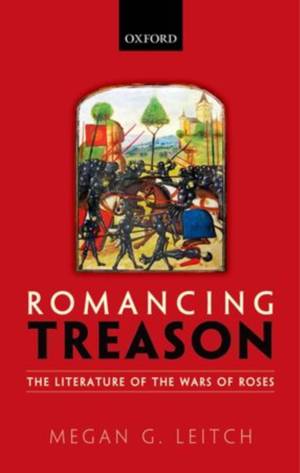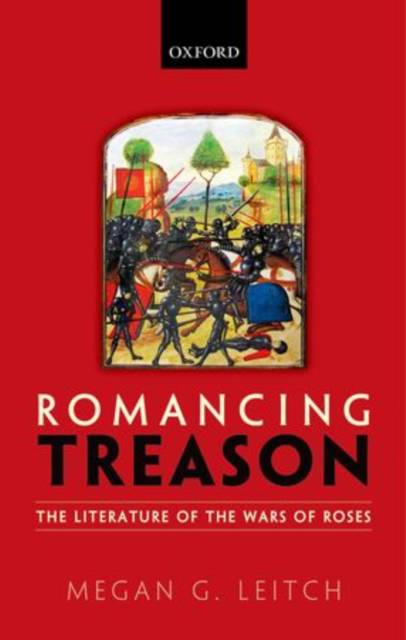
- Retrait gratuit dans votre magasin Club
- 7.000.000 titres dans notre catalogue
- Payer en toute sécurité
- Toujours un magasin près de chez vous
- Retrait gratuit dans votre magasin Club
- 7.000.0000 titres dans notre catalogue
- Payer en toute sécurité
- Toujours un magasin près de chez vous
152,95 €
+ 305 points
Description
Romancing Treason addresses the scope and significance of the secular literary culture of the Wars of the Roses, and especially of the Middle English romances that were distinctively written in prose during this period. Megan Leitch argues that the pervasive textual presence of treason during the decades c.1437-c.1497 suggests a way of conceptualising the understudied space between the Lancastrian literary culture of the early fifteenth century and the Tudor literary cultures of the early and mid-sixteenth century. Drawing upon theories of political discourse and interpellation, and of the power of language to shape social identities, this book explores the ways in which, in this textual culture, treason is both a source of anxieties about community and identity, and a way of responding to those concerns. Despite the context of decades of civil war, treason is an understudied theme even with regards to Thomas Malory's celebrated prose romance, the Morte Darthur. Leitch accordingly provides a double contribution to Malory criticism by addressing the Morte Darthur's engagement with treason, and by reading the Morte in the hitherto neglected context of the prose romances and other secular literature written by Malory's English contemporaries. This book also offers new insights into the nature and possibilities of the medieval romance genre and sheds light on understudied texts such as the prose Siege of Thebes and Siege of Troy, and the romances William Caxton translated from French. More broadly, this book contributes to reconsiderations of the relationship between medieval and early modern culture by focusing on a comparatively neglected sixty-year interval -- the interval that is customarily the dividing line, the 'no man's land' between well--but separately-studied periods in English literary studies.
Spécifications
Parties prenantes
- Auteur(s) :
- Editeur:
Contenu
- Nombre de pages :
- 230
- Langue:
- Anglais
Caractéristiques
- EAN:
- 9780198724599
- Date de parution :
- 29-03-15
- Format:
- Livre relié
- Format numérique:
- Genaaid
- Dimensions :
- 142 mm x 218 mm
- Poids :
- 408 g

Les avis
Nous publions uniquement les avis qui respectent les conditions requises. Consultez nos conditions pour les avis.






